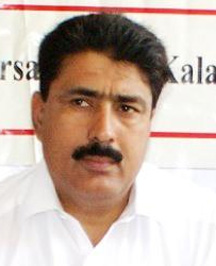ISLAMABAD (Reuters) – The Pakistani doctor who helped the CIA find Osama bin Laden faced accusations of corruption and other wrongdoing long before he was captured by Pakistani intelligence agents and then jailed for 33 years for treason.

In interviews over the weekend, several current and former Pakistani officials described the doctor, Shakil Afridi, as a hard-drinking womaniser who had faced accusations of sexual assault, harassment and stealing. They said his main obsession was making easy money.
According to a 2002 Pakistan health department document seen by Reuters, Afridi was deemed to be corrupt and unreliable and unfit for government service.
US officials have hailed Afridi, aged in his 40s, as a hero for helping pinpoint bin Laden’s location in the Pakistani town of Abbottabad where the al Qaeda leader was killed in May last year in a raid by US Navy SEALs.
Officially Pakistan has said nothing about Afridi except that the court’s decision to sentence him should be respected. But the fresh accusations about Afridi’s character, coupled with his imprisonment, will almost certainly lead to further strain on already tense bilateral ties.
Pakistani officials’ attempts to cast doubt on Afridi’s character will likely be viewed in some quarters as retaliation for his work with the Americans, despite the disclosures in the 2002 Pakistani document.
US officials yesterday called the accusations character assassination. In Washington, one senior official said the US government was unaware of any questionable behaviour by Afridi.
“Available information showed Afridi was a respected member of the Pakistani health care community,” said the senior official. “We are aware of efforts, put in place since Dr Afridi’s arrest, to denigrate his character.”
Another US official said: “It’s nothing short of puzzling that Pakistani officials would disparage someone who helped in the hunt for bin Laden, a terrorist who had Pakistani blood on his hands.”
The Afridi family’s lawyer declined to be drawn on the controversy. “I cannot comment on any past allegations against him,” Raza Safi told Reuters.
Afridi ran a vaccination campaign in Abbottabad and used cheek swabs to try to gather DNA from bin Laden’s children, said one former Pakistani security official familiar with the case.
Accompanied by three health workers, he went to bin Laden’s house and told his wives that a vaccination programme was underway in the area, said the former security official.
“A woman went in (to the house) and said ‘bring the children out, the doctor is waiting and he will give them the drops’,” the former official said. “That’s when he used the swabs.”
It was unclear whether the CIA used the swabs to determine if the children were bin Laden’s. A DNA test can prove close blood relations and US authorities could have matched the samples with profiles it had collected from several of bin Laden’s relatives.
In Washington, another senior US official with knowledge of Afridi’s work for the CIA said the doctor’s vaccination efforts had also enabled him to gather intelligence on bin Laden’s couriers who visited the house.
“Dr Afridi was inadvertently able to confirm something we already suspected – that bin Laden’s couriers practised extraordinary operational security,” the official said.
“Was that a key to the raid? No. Was it important? Absolutely.”
US Defence Secretary Leon Panetta said on Sunday that Afridi “was not working against Pakistan. He was working against al Qaeda. And I hope that ultimately Pakistan understands that”.
“Because what they have done here, I think, you know, does not help in the effort to try to re-establish a relationship between the United States and Pakistan.”
US Congressman Dana Rohrabacher introduced legislation in February calling for Afridi to be granted US citizenship and said it was “shameful and unforgivable that our supposed allies” charged him.
Infuriated by the unilateral US raid in a town just a two-hour drive from the capital Islamabad, many in the country see Afridi as a villain who conspired against the state and brought unwanted scrutiny of Pakistan’s attitude to militants. Last week, a tribal court sentenced him to 33 years in prison for working with a foreign intelligence agency.
Afridi is being kept in solitary confinement in a prison in the city of Peshawar for fear that he may be targeted by Islamic militants also incarcerated there, said prison sources.
Afridi had been working with the CIA for years before the bin Laden raid, providing intelligence on militant groups in Pakistan’s unruly tribal region, said the former Pakistani security official and a former Pakistani intelligence official.
They and other officials said he was of questionable character. “Afridi was known to perform surgeries even though his qualification was basic and he was not authorised to conduct surgery,” a senior provincial health official said.
“He was accused of conducting surgeries of the eyes, nose, ears, kidneys.”
Afridi was also in contact with militant groups and treated Taliban fighters who were wounded in battle with the Pakistani military, said the former security official.
The Taliban are described by the state as terrorists, and most Pakistanis strongly oppose their suicide bombing missions, and philosophy.








